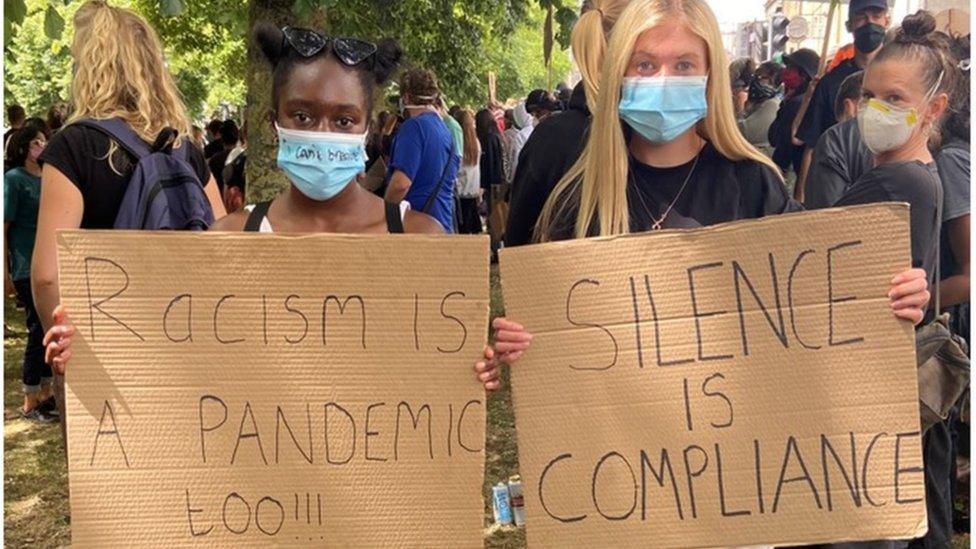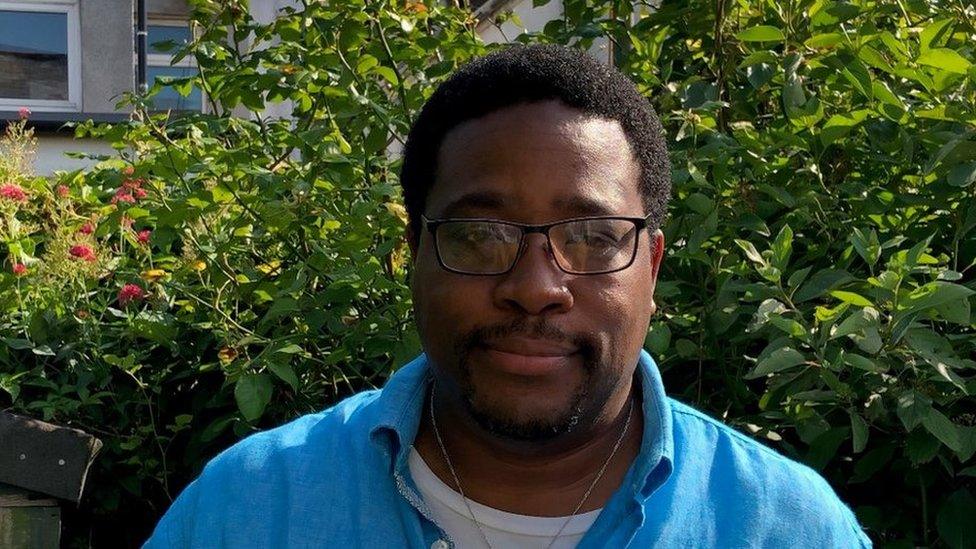BAME: 'I hit a dead end in Wales and had to leave'
- Published
"I want to come back to change in Wales"
At only 24 years of age, Chizi Phiri, has an impressive CV.
A graduate of Swansea University, she was Women's Officer at NUS Wales where she ran a nationwide campaign on period poverty.
After that, she completed a mentoring scheme to help her break into public life in Wales.
A good start for an articulate and confident young person whose ultimate goal is to become a politician.
The only problem? Ms Phiri says she hit a dead end in Wales and had to leave.
"We all know the statistics," she says.
"Black and Asian graduates have to send 80% more applications than their white counterparts. That's definitely something I experienced.
"And public life and politics is really not representative of the Wales we're living in today. As a young black woman, you want to see other people that look like you to give you confidence, and it really wasn't there in Wales."

Ms Phiri hopes to become a politician
Ms Phiri wants to see change.
"I think a lot of people pay lip service and I hear a lot of these conversations. You know I've seen countless reports and consultations. What I'm not seeing is actions," she said.
"How many black people are you employing in higher executive levels? What are you paying your black staff? Is it equal to their white counterparts? And what are you doing to elevate them further into higher roles?"
She is not the only person of colour who said she had to leave Wales to develop their career.

Dr Constantino Dumangane Jr would like to work in Wales in the future
Dr Constantino Dumangane Jr is an academic whose research specialism is race and diversity.
Originally from the USA, he has lived in Cardiff for 14 years.
He says it was a battle to get Welsh academia to take race seriously as a research subject.
"In Wales, it's class or it's gender and race is always the last thing on the list, and that's extremely problematic," he said.
Dr Dumangane went to work at the University of York, where he now researches and teaches on issues of race and ethnicity, despite still living in Cardiff.
Recently, the impact of Coronavirus on BAME people and the Black Lives Matter movement have sharpened the focus on systemic racism.
The first minister has spoken about the "lack of BAME representation in decision-making processes" and a recent review of the appointments the Welsh Government makes to public bodies has suggested changes.
'Huge deficit'
In 2018-19, 3% of appointments were of BAME people despite them making up 5% of the population.
Equalities Minister Jane Hutt insists some progress has been made over the 20 years that Welsh Labour has been in power in Cardiff Bay but admits there is "a huge deficit in terms of representation particularly of BAME people and also disabled people, though we've made more progress on women".
She added: "We know it's no good just going on the same way we've been doing."
Both Dr Dumangane and Ms Phiri would like to work in Wales, but only when they feel there is a place for them.
"I love it and I think it's an incredible country," says Ms Phiri.
"But I want to come back and see diversity. I would love to come back, but things really, really need to change."
- Published22 June 2020

- Published20 April 2020
